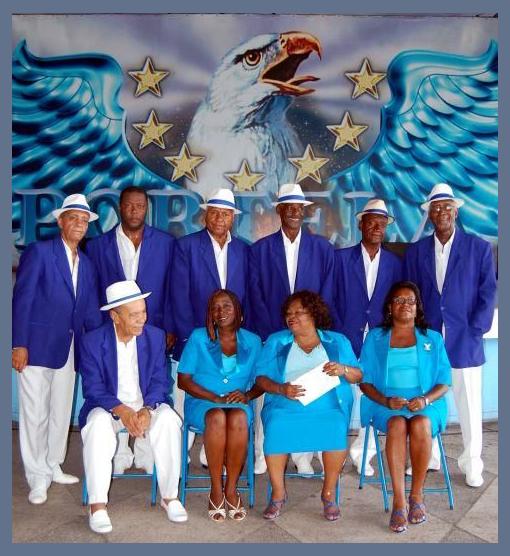 Velha Guarda da Portela
Velha Guarda da Portela
Velha Guarda da Portela: A Musical Legacy of Samba and Controversy
Velha Guarda da Portela, a legendary Brazilian samba ensemble, has played an instrumental role in shaping the musical landscape of Rio de Janeiro. The group, formed by aging members of the renowned samba school Portela, has carved a distinct path with their evocative melodies, poignant lyrics, and captivating performances.
Formation and Early Years
Emerging in the 1960s, Velha Guarda da Portela embodied the spirit of tradition and nostalgia. Composed of veterans who had witnessed the golden age of samba, the group aimed to preserve and celebrate the genre's classic sounds. Their performances at Portela's samba school events resonated deeply with audiences, earning them a devoted following.
Discography and Acclaim
Throughout their illustrious career, Velha Guarda da Portela has released numerous albums that have become samba classics. Their debut album, "Velha Guarda da Portela Grande," released in 1970, featured iconic songs such as "Você Me Abandonou" and "Meu Homem é o Samba." Subsequent albums, including "Velha Guarda da Portela Especial" (1972) and "Velha Guarda da Portela 1974," showcased their versatility and mastery of samba's various styles.
Challenges and Controversies
Despite their immense popularity, Velha Guarda da Portela has not been immune to controversy. In 1972, the group released the song "Você Me Abandonou," which became a massive hit. However, the song's lyrics, which centered on themes of betrayal and heartbreak, drew criticism from some quarters for their perceived pessimism.
Members and Legacy
Over the years, Velha Guarda da Portela has featured a rotating cast of talented musicians, including vocalists such as Jair do Cavaquinho, Monarco, and Tia Doca. The group's enduring spirit and passion for samba have inspired countless artists and continue to captivate audiences across generations.
Conclusion
Velha Guarda da Portela stands as an indomitable force in the world of samba. Their timeless melodies, masterful performances, and unwavering commitment to tradition have earned them a place among the most influential artists in Brazilian music history. Despite occasional controversies, their legacy as guardians and innovators of samba remains unassailable.
Velha Guarda da Portela, a legendary Brazilian samba ensemble, has played an instrumental role in shaping the musical landscape of Rio de Janeiro. The group, formed by aging members of the renowned samba school Portela, has carved a distinct path with their evocative melodies, poignant lyrics, and captivating performances.
Formation and Early Years
Emerging in the 1960s, Velha Guarda da Portela embodied the spirit of tradition and nostalgia. Composed of veterans who had witnessed the golden age of samba, the group aimed to preserve and celebrate the genre's classic sounds. Their performances at Portela's samba school events resonated deeply with audiences, earning them a devoted following.
Discography and Acclaim
Throughout their illustrious career, Velha Guarda da Portela has released numerous albums that have become samba classics. Their debut album, "Velha Guarda da Portela Grande," released in 1970, featured iconic songs such as "Você Me Abandonou" and "Meu Homem é o Samba." Subsequent albums, including "Velha Guarda da Portela Especial" (1972) and "Velha Guarda da Portela 1974," showcased their versatility and mastery of samba's various styles.
Challenges and Controversies
Despite their immense popularity, Velha Guarda da Portela has not been immune to controversy. In 1972, the group released the song "Você Me Abandonou," which became a massive hit. However, the song's lyrics, which centered on themes of betrayal and heartbreak, drew criticism from some quarters for their perceived pessimism.
Members and Legacy
Over the years, Velha Guarda da Portela has featured a rotating cast of talented musicians, including vocalists such as Jair do Cavaquinho, Monarco, and Tia Doca. The group's enduring spirit and passion for samba have inspired countless artists and continue to captivate audiences across generations.
Conclusion
Velha Guarda da Portela stands as an indomitable force in the world of samba. Their timeless melodies, masterful performances, and unwavering commitment to tradition have earned them a place among the most influential artists in Brazilian music history. Despite occasional controversies, their legacy as guardians and innovators of samba remains unassailable.